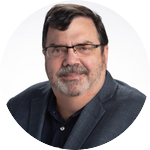
“Let the public service be a proud and lively career.” —John F. Kennedy, January 1961
“Public service is a noble calling, and we need men and women of character to believe in their communities, in their states, and in their country.” —George H.W. Bush, January 1997
“I know that you grew up in a corrupt city, but not all cities are like that. There are communities run by professional, ethical individuals and they are smart, hardworking people who really care about community service. They are members of the Illinois City Management Association. There’s also a national association.” —Barbara Kleisner, Fall 1987
I walked into my first manager gig on May 1, 1989. Then seemingly, all of a sudden, it was January 2023, and I was making the decision to retire. After nearly 800 board meetings (not including planning commission or committee meetings) and 35 budgets, I was spent. As the April elections were looming, I made the decision not to announce my retirement until after the elections. I did not make either of these decisions in a vacuum. In addition to consulting with my wife Barbara, I called Martha Perego, then the ethics guru at ICMA, to discuss the timing of my announcement. She concurred with my thoughts on holding off as I did not want this to be an election issue.
Retirement came in June 2023, and I did not look back. I did the first-year retirement thing—long-neglected home projects and a ton of travel. However, the big highlight was looking out my front window with a cup of coffee in hand while watching a snowstorm from the comfort of my living room and not caring about snow plowing, overtime, or water main breaks. (It was glorious!)
These were things planned way before I retired. Initially, I thought that I would take a couple of months off and get back into the swing of things, perhaps consulting, maybe some interim work, maybe a gig as a greeter at Walmart. None of these happened. The home projects are still ongoing, and I am still traveling. However, I did start to miss the feeling of being in service in organizations that reflect what I hold dear: ILCMA, Rotary International, and the Waldorf School of DuPage. Be careful what you wish for.
Within a month of each other, I found myself involved with all three. I became a senior advisor with the encouragement of my friend and now fellow senior advisor, Robin Weaver, who suggested that I apply. I was honored and a bit humbled to be considered. I applied, and it turns out that I am now one of the three newer senior advisors for ILCMA/ICMA.
Throughout my career, I’ve only worked for small organizations. I never managed a town of more than 6,000 or had a staff of more than 35. In all but one organization, I was the first professional manager (or the first one in 22 years). The work of transitioning an organization to being run by a professional manager was tricky and required patience and a keen sense of what to change at once and what could hold off for the long term. It really helps if the entire council is behind the initiative to have professional management. Outlining the process during the interview/contract negotiating phase is necessary. Getting a handle on expectations is critical.
Enough of my background. I picked the first two quotes at the beginning of the article as they reflect my views of public service. Only after I picked them did I realize that one was written by a democrat and the other by a republican. To this day, I still believe that true public service is not partisan based but rather for the common good. Though when we take our oath accepting the ICMA Code of Ethics to be apolitical/nonpartisan, it does not mean that we should be unaware of the political climate or unaware of the ramifications of decisions or recommendations that we make. Political awareness is just another way of learning where someone is coming from when looking at the situation from their point of view.
Neither political party has a lock on clever ideas just as neither political party has a lock on bad ideas. I know that this goes against the political reality of today at the state and national levels. And unfortunately, this is starting to creep in at the local level as well. My comments are not the be-all-end-all in words of advice, but my hope is that they might inspire deeper thought on the ICMA Code of Ethics.
I think that the most important thing is to have a reputation for having unimpeachable ethics and a commitment to doing the right thing for the right reason, all the time, even when nobody is looking. To develop a reputation as being a person who gives thoughtful consistent guidance whose statements are based on facts and hard evidence and not what “everybody is saying” at the moment.
I also think that asking probing questions as to why a person has a particular point of view is necessary. This can be a tough habit to develop, especially when trying not to be confrontational when asking those questions. It really helps if you can ask the questions by being genuinely interested in learning about the other person, their background, and what brings them to the table. This is something that cannot be faked. It is also something that must be honed over time.
Admittedly, this might be a bit easier at the local level than at the state or national levels. But it is just as important and probably a bit more so. Endeavoring to ask the hard questions and attempt to understand one another is a fight that we cannot turn our back on as I believe that service at the local level is the most critical component of our democracy. We do what we do because we believe it to be important. This is not an easy task to say the least.
Democracy is not easy, and compromise is often the only way things can happen. Our country would not exist without it. Remember that several of our country’s founding fathers had to compromise some of their strongest held beliefs for the greater future good and hold certain issues to be fought for later.
Engaging in conversation and truly listening to what others have to say can help lessen the barriers in today’s divided world.
And for those of you who wondered who the third quote was from, it’s from Barbara Kleisner, now DuRocher—my wife of the last 36 years.

JOHN DUROCHER served as manager of a number of small towns, several as their first administrator, as well as executive director of the Northwest Water Commission. He is also a former officer in the United States Navy. His superpowers include sarcasm and causing ropes, lines, and cords to get tangled in his presence.
New, Reduced Membership Dues
A new, reduced dues rate is available for CAOs/ACAOs, along with additional discounts for those in smaller communities, has been implemented. Learn more and be sure to join or renew today!
